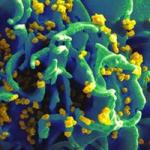
Andre Ballesteros-Tato, Ph.D.
Senior Investigator
Adaptive Immunity and Immunoregulation Section
NIAID/DIR
Research Topics
The overall goal of the Adaptive Immunity and Immunoregulation Section is to define the cellular and molecular mechanisms that regulate the balance between protective and pathogenic adaptive immune responses to allergens. Ultimately, our research aims to develop new immunotherapies to treat and prevent food and respiratory allergies without inducing profound immunosuppression.
We focus on three main areas:
- Tolerance vs. Inflammation: Tolerance prevents immune overactivation and maintains tissue homeostasis, while inflammation is critical for fighting infections. However, when these processes occur simultaneously, inflammation can disrupt tolerance, amplifying immune responses to harmless antigens such as allergens. Conversely, persistent allergic reactions can induce cellular and environmental changes that impair responses to pathogens and vaccines. We study how viral infections contribute to allergic responses and how allergies affect immune responses to pathogens. This knowledge is vital for designing therapies that prevent unwanted immune responses while preserving protective immunity.
- T Follicular Helper (Tfh) Cells: Tfh cells are crucial for supporting B cells and maintaining germinal centers. Recent findings from our lab have revealed that Tfh cells are more diverse than previously expected, secreting effector cytokines and playing broader regulatory roles. There is also growing evidence of an ontogenetic link between Tfh cells and other effector and regulatory T cell subsets. We study Tfh cell plasticity and heterogeneity, exploring their impact on tolerance induction and allergy development.
- Lung-Resident Memory T and B Cells: Lung-resident memory T and B cells are non-circulating memory cells that develop in response to respiratory challenges and permanently reside in the lungs. While the role of tissue-resident memory cells in response to respiratory pathogens has been established, their involvement in respiratory allergies remains elusive. We investigate how allergen-specific lung-resident memory T and B cells are generated and maintained, defining the factors controlling tissue memory generation and assessing their role in allergic responses. We also evaluate the potential of targeting these cells to prevent allergic reactions.
By integrating these projects, we aim to elucidate the complex mechanisms that balance protective and pathogenic immune responses and generate the necessary knowledge to develop novel treatments for food and respiratory allergies.
Biography
Dr. Andre Ballesteros-Tato earned his Ph.D. in molecular biology from Autónoma University of Madrid and completed postdoctoral training at the Trudeau Institute and the University of Rochester. From 2015 to 2024, he led an internationally recognized research program at the University of Alabama at Birmingham (UAB), focusing on B and T cell responses to allergens and pathogens. He was a tenured endowed professor at UAB before joining the Laboratory of Allergic Diseases (LAD) at NIAID in 2024. Dr. Ballesteros-Tato is now the Chief of the Adaptive Immunity and Immunoregulation Section at LAD. His lab employs state-of-the-art cellular and molecular approaches to study adaptive immune responses to food and respiratory allergens and pathogens.
Selected Publications
- Papillion A, Powell MD, Chisolm DA, Bachus H, Fuller MJ, Weinmann AS, Villarino A, O'Shea JJ, León B, Oestreich KJ, Ballesteros-Tato A. Inhibition of IL-2 responsiveness by IL-6 is required for the generation of GC-T(FH) cells. Sci Immunol. 2019;4(39).
Related Scientific Focus Areas


Microbiology and Infectious Diseases
View additional Principal Investigators in Microbiology and Infectious Diseases


This page was last updated on Thursday, August 21, 2025